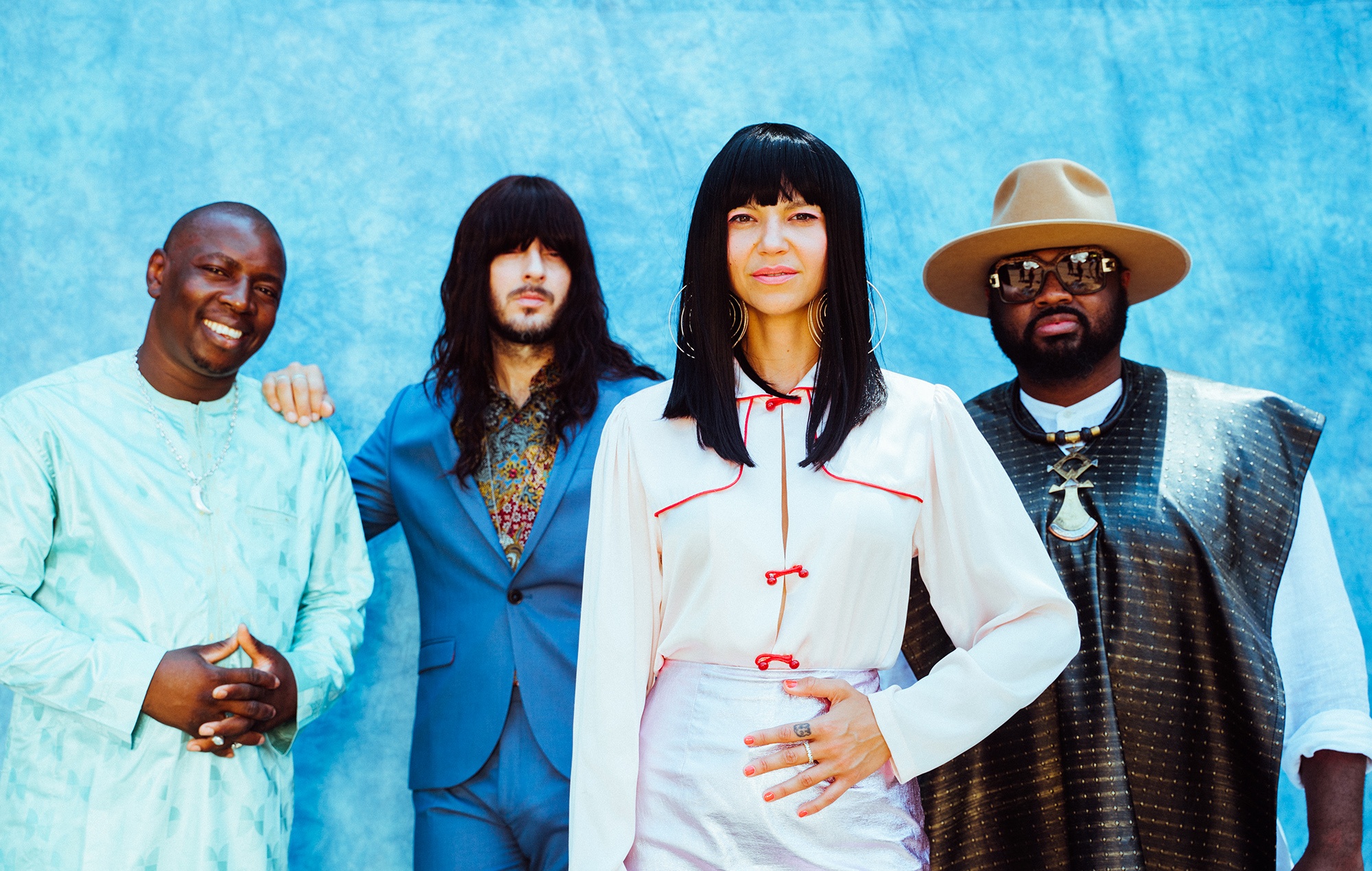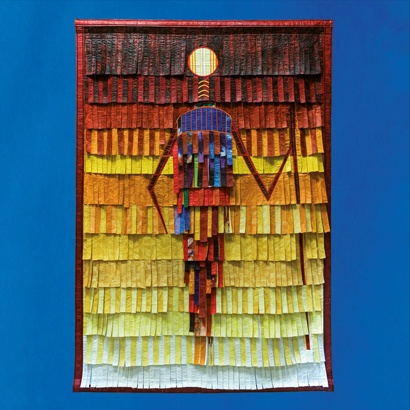Ali Farka Touré’s sound merged his traditional Malian musical styles with distinct elements of the blues, singing in the local languages of Fulfulde, Tamasheq, Songhay and Bambara. The result was the creation of a groundbreaking new genre, now well known as the ‘desert blues’, earning him three Grammy awards, widespread reverence and the nickname of the ‘African John Lee Hooker’.
In 2000, Touré temporarily gave up music, devoted himself to rice cultivation in Niafunké and became involved in local politics. He died in 2006 at the age of 66.
Ali’s musical legacy lives on through his son, Vieux, an accomplished guitarist of Malian music in his own right. On “Ali”, his collaborative album with Khruangbin, he pays homage to his father by recreating some of his most resonant work, putting new twists on it while maintaining the original’s integrity. The result is a rightful ode to a legend.
Vieux got the idea to team up with Khruangbin for a tribute after seeing the trio live at London’s Roundhouse in 2018. The trio’s mix of amorphous, psychedelic funk has garnered mass acclaim across various countries and continents, including Mali. “I wanted to do this tribute with Khruangbin because I adore their music and they are a great example of musicians from a different generation, and from a very different part of the world, who were also inspired and influenced by my father,” Vieux says. “I want this album to convey love. It is about the love that I have for him and that Khruangbin has for his music.”
A year later, the band and Vieux met in a Houston studio to record the tribute within a week. The recordings were finally completed in 2021 during the global pandemic.
The special thing about the work on the album is Vieux’s approach. He wanted to keep things relaxed and open-ended to preserve the natural improvisation of his father’s music. The guitarist deliberately didn’t say much about the songs that were going to be played. Just relax and be in the moment, Vieux implored. Even the simplest gesture, like his dedication to rest and nourishment, comes through sonically. “He was bringing giant fish every day with rice,” says Khruangbin’s bassist Laura Lee Ochoa. “Three or four o’clock, he’d pull out the fish and then that was it. He was done.”
The move is refreshing in today’s rise-n-grind environment, in which regular tasks seem immediate though it’s rarely that serious. Indirectly, Vieux was letting the relaxed spirit of his father’s art come through organically. “Not a lot of stuff in the recording process was overthought,” Khruangbin’s drummer Donald Johnson says. “When you’re in a situation like that, you just rely on instincts and trusting like, ‘OK, this is who I am.”
But magic grows out of this uncertainty, these random moments that you simply can’t practise and that make up the music of the album. “An awesome thing happens with uncertainty,” the band’s guitarist Mark Speer says, “where you get into that zone of taking risks or taking a chance and not knowing where it’s going to end up and being like, ‘Let’s just ride that vibe and see what happens.’”
Vieux and Khruangbin are spreading the good word to a completely new generation. “I hope it takes them somewhere new, or puts them in a place they haven’t felt or heard,” Lee says. “It is about the love of new friendship and making something beautiful together,” Vieux continues. “It is about pouring your love into something old to make it new again. In the end and in a word it is love, that’s all.”


